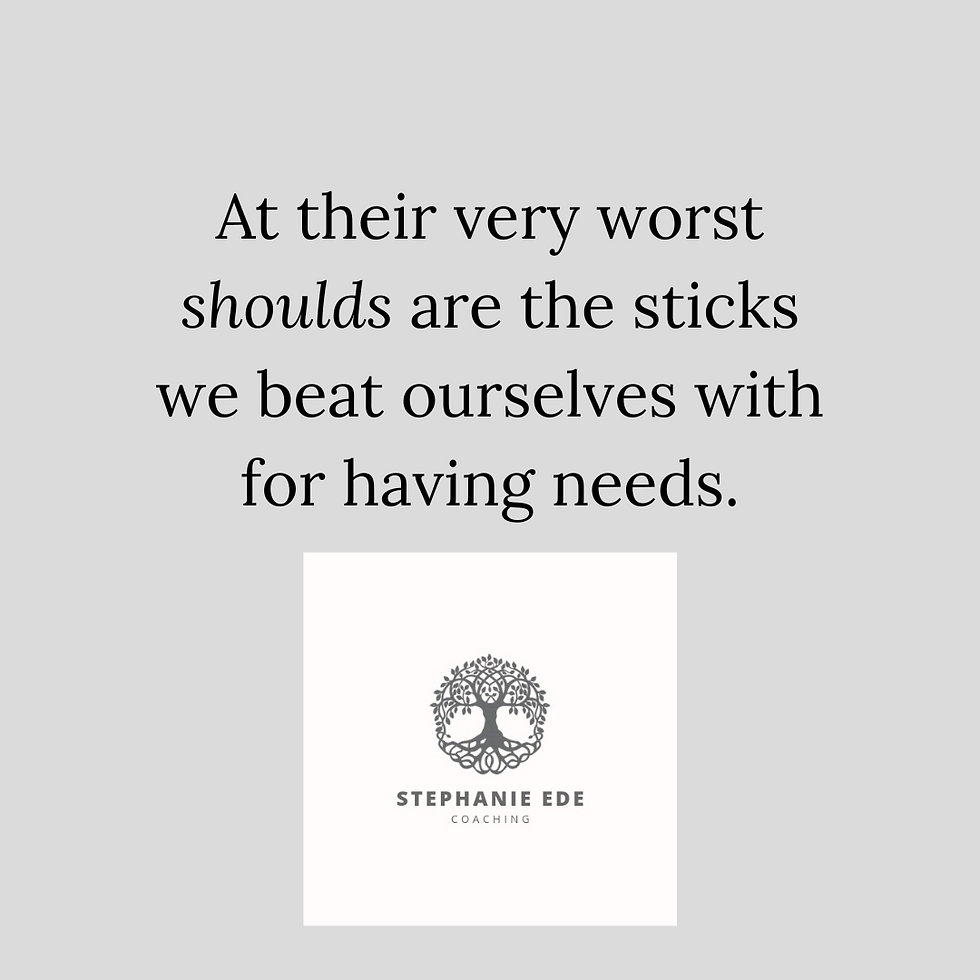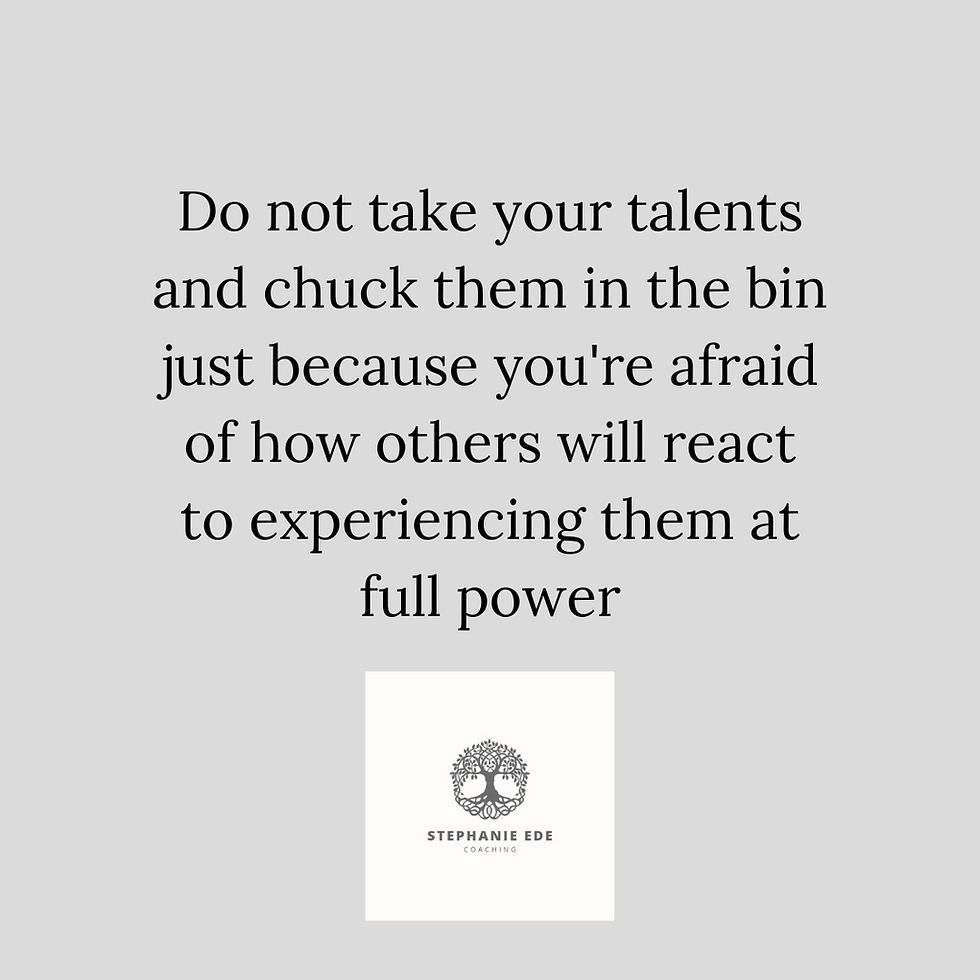The Toxic Power of 'Should'
- stephedecoaching
- Apr 18, 2023
- 3 min read

If there was one word I could eliminate from the English language it would be should. There are a lot of words that we perhaps ought to consider eliminating, so why should? Let me explain.
should: used to indicate obligation, duty or correctness, typically when criticising someone’s actions.
(Oxford Languages)
How many times have you been told by friends and family that you should do this or you should try that? How many times have you told a friend what they should do? How many times have you told yourself what you should be doing?
Should seems like such an innocuous little word, but it is a word that can crush hope, vision and dreams and send us scurrying back to the safety of what we already know we don’t want. Should implies that the course of action is obvious, that everyone can see it (even you, sometimes!) and yet you are not doing it. Why not? It’s obvious! It’s what you should do!
I don’t believe for a second that when others tell us what we should do or try that it is anything other than well-meaning advice coming from a kind, and sometimes concerned, place. Our friends and family (mostly) want the best for us – that our lives should be safe and secure – but they don’t always understand what we need in order to thrive and find our own version of fulfilment. Safety and security look like different things to different people. Those around us only understand what they think we need, and that often aligns with what has worked for them, because the familiar can be compelling in its predictability. They are viewing your needs through their own lens. That’s fine if you are exactly the same person, but trust me, you’re not. If the suggested shoulds were right for you, you would already to be doing them and be happy about that. Those shoulds would be your purpose, not what you are trying to distance yourself from.
Do me (and yourself) a favour. The next time someone advises that you should do something, drop into your body and check in with its reaction? Do you tighten up? Become defensive? Feel misunderstood? Want to tell them why it’s not for you? Want to scream that they don’t understand you and your needs at all?
And the next time you tell yourself you should be doing this or that, ask yourself if you are genuinely offering a positive suggestion that will move you towards your purpose or if you are berating and/or punishing yourself for not conforming or being what is convenient for society for you to be. The two couldn’t be more different, and will create very different outcomes.
If you bow to the shoulds you will likely repeat the patterns that have got you to the very place of lack and unfulfilment that you are trying to escape. Shoulds are societal expectations, the neat little boxes we are jammed into because, and this is important, IT IS CONVENIENT FOR EVERYONE ELSE. But it’s not convenient for you. It’s painful and depressing and soul-destroying and it’s not what you want. And at their very worst, shoulds are the sticks we beat ourselves with for having needs.
So, the next time someone suggests that you should do something, thank them for the suggestion and their support, and ignore it. Forget it. Don’t get upset, defensive or misunderstood. Disregard it. If it’s a viable and positive future pathway for you it will come back to you, but through you.
When you connect with an idea or path that is aligned with your purpose you won’t tighten up, become defensive, feel misunderstood or want to scream. It may feel frightening, you may feel some resistance because the path does not look conventional, but it will also feel freeing and a spark will light within you.
I would gently suggest that, just for a moment, you stop listening to your family, friends and your intellect, and connect with what your body tells you about where you need to go next.
And remember, shoulds are ‘obligations, duties and correctness’. If you have trodden that well-worn path to death and you don’t want to walk it for another single second, start by changing your vocabulary and eliminate the shoulds.



Comments